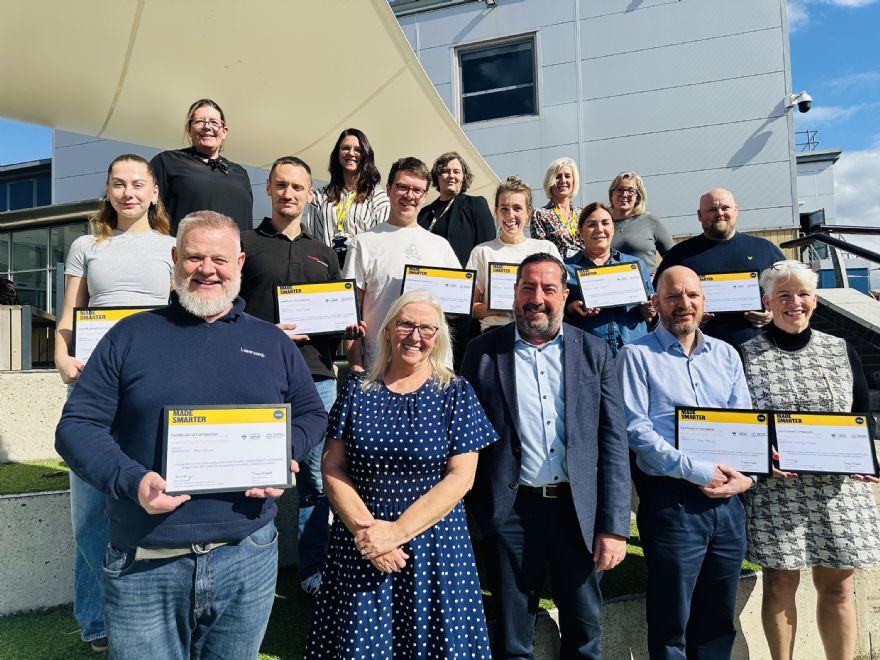 Made Smarter
Made Smarter is marking a major milestone in its mission to modernise UK manufacturing, by celebrating a new wave of industry leaders who are driving digital transformation from within. The latest cohort of its Leading Digital Transformation (LDT) programme has brought together 12 SME manufacturers from a wide range of sectors, each now equipped with the confidence, strategic insight and practical tools to lead their businesses into the digital age.
Delivered in collaboration with the
University of Salford and
Manchester Metropolitan University, the 14-week programme combines online and in-person learning to offer a flexible, high-impact experience tailored to the demands of manufacturing leadership. As part of the Made Smarter North West initiative — a Government-backed, industry-led effort to accelerate technology adoption — the programme also provides direct exposure to advanced technologies and fosters peer-to-peer learning networks that continue well beyond the classroom.
Since its inception in 2023, the LDT programme has supported 65 manufacturing leaders in developing bespoke digital strategies, building on the success of Made Smarter’s earlier leadership initiative which reached 62 leaders between 2019 and 2023. The latest group includes manufacturers from engineering, food and drink, furniture, heritage craft and sustainable fashion among the participants.
At the recent graduation showcase, Simon Keogh, general manager of factory automation at
Siemens UK and Ireland and a member of Made Smarter North West’s Steering Board, reflected on the programme’s impact. “Digital transformation is not a single project but a continual process of improvement,. Many SMEs recognise the significant productivity improvements that can be gained from the use of new technologies, from AI to digital modelling and simulation. Made Smarter’s leadership programme is empowering manufacturers with the tools and confidence to embed that mindset and bring their people with them.”
Digital workflowsPaul Fleming, managing director of Fleming Howland, a furniture manufacturer in Lancashire, shared how the programme helped balance tradition with innovation. He said: “Our challenge is to respect heritage craftsmanship while embracing the tools that secure our future. The programme gave us structured planning tools and the confidence to use digital technologies such as CNC and kanban software alongside traditional artistry without compromising quality. Taking time to step back and look at the business strategically helped us identify ways to reduce lead times, cut waste and improve communication. We are now developing an R&D hub, investing in digital workflows and bringing more production in-house to support apprenticeships and sustainable growth.”
With the next cohort now open for registration, manufacturers across the North West are being invited to join the LDT programme and become part of Made Smarter’s growing ecosystem of digital leaders. Ruth Hailwood, Made Smarter’s lead organisation and workforce development specialist, said: “What makes this programme special is that it brings manufacturing leaders together to share ideas, challenges and experiences in a space designed for their sector. They quickly realise they are not alone on their digital journey. By learning with and from their peers, participants build lasting networks of support that extend far beyond the course itself. That community of shared learning and collaboration is what drives the wider culture of digital leadership we are building through Made Smarter.
“Our people-first approach helps SME manufacturers adopt technology in a way that fits their business. The programme gives leaders the time and space to step back, reflect and share ideas with peers, so they can take their whole organisation through digital transformation with confidence.”
Dr Ann Mulhaney, associate professor of change management at the University of Salford, concluded: “This partnership between academia and industry is helping to shape a new generation of leaders who can guide manufacturing through the opportunities and complexities of digital transformation.”